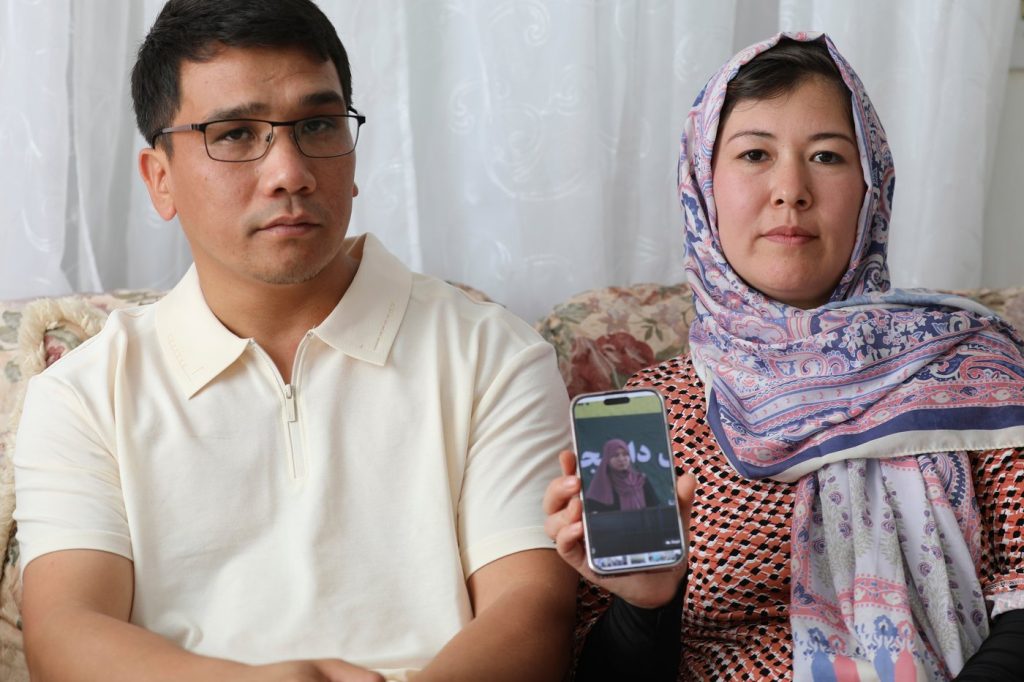IRMO, S.C. (AP) – Mohammad Sharafoddin, along with his wife and young son, endured a grueling 36-hour trek over mountain passes when they fled Afghanistan, eventually settling in a comfortable three-bedroom home in suburban America. Less than a decade after their harrowing escape, the couple aspired to bring Sharafoddin's niece to the United States for a promising future, perhaps to study medicine.
However, their dreams faced a harsh blow when a new travel ban targeting Afghanistan and 12 other countries was implemented. This ban, signed by President Donald Trump on Wednesday, restricts travel to the U.S. from Afghanistan, Myanmar, Chad, the Republic of Congo, Equatorial Guinea, Eritrea, Haiti, Iran, Libya, Somalia, Sudan, and Yemen. Sharafoddin expressed shock at the news, particularly at the impact it would have on women affected by the Taliban's return to power.
Trump's travel ban, similar to one from his initial term but encompassing a broader range of countries, stems from concerns about insufficient screening measures for citizens from these nations, high rates of visa overstays, and the refusal of some countries to take back their own citizens. Although exceptions are made for Afghan nationals holding Special Immigrant Visas, which are allocated to those who worked closely with the U.S. government during the two-decade conflict, the ban leaves many feeling hopeless.
Afghanistan has been a significant source of refugees, with approximately 14,000 arrivals recorded over a 12-month period ending in September 2024. Sharafoddin's family's journey included perilous crossings from Afghanistan to Pakistan, Iran, and ultimately Turkey, where he labored in a factory to support his family while learning English through YouTube videos. His perseverance paid off when they were resettled in Irmo, South Carolina, not far from Columbia.
The couple's son, now 11, and their daughter, a 3-year-old born in the U.S., are flourishing in their new environment, while Sharafoddin's job at a jewelry maker supports their suburban life. Nuriya, Sharafoddin’s wife, finds joy in learning English and driving—skills denied to her under Taliban rule. She looks forward to her children’s futures, ideally seeing them attend college after graduation.
However, their ambition to assist Nuriya's niece, who is now barred from pursuing her education due to the political situation in Afghanistan, fills them with sadness. Sharafoddin and Nuriya had hoped to bring their niece to the U.S. to protect her future. The couple has yet to break the news to her about the travel ban, causing Nuriya considerable emotional turmoil.
During their interview, Jim Ray, a local advocate for refugees, stopped by to offer his assistance. He articulated the concerns the Afghan community in Columbia has regarding the implications of the ban, particularly its impact on reunification with extended families either struggling or living in dire conditions in Afghanistan. Many families, including the Sharafoddins, feel the weight of helplessness as the chance to support their relatives diminishes.
The Taliban's response to the travel ban has been critical, denouncing the U.S. government's actions as oppressive. The Taliban's leader, Hibatullah Akhundzada, condemned the exclusion of Afghan citizens, claiming it reflects a lack of control over their people and calling the U.S. a world oppressor.
As the Sharafoddins navigate their lives in America, they grapple with the implications of a travel ban that threatens to sever the ties that bind families together across continents.











